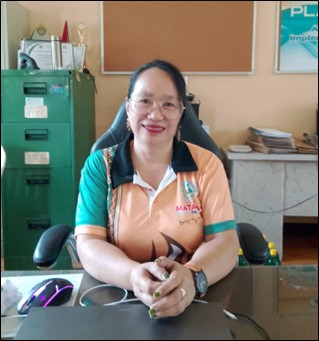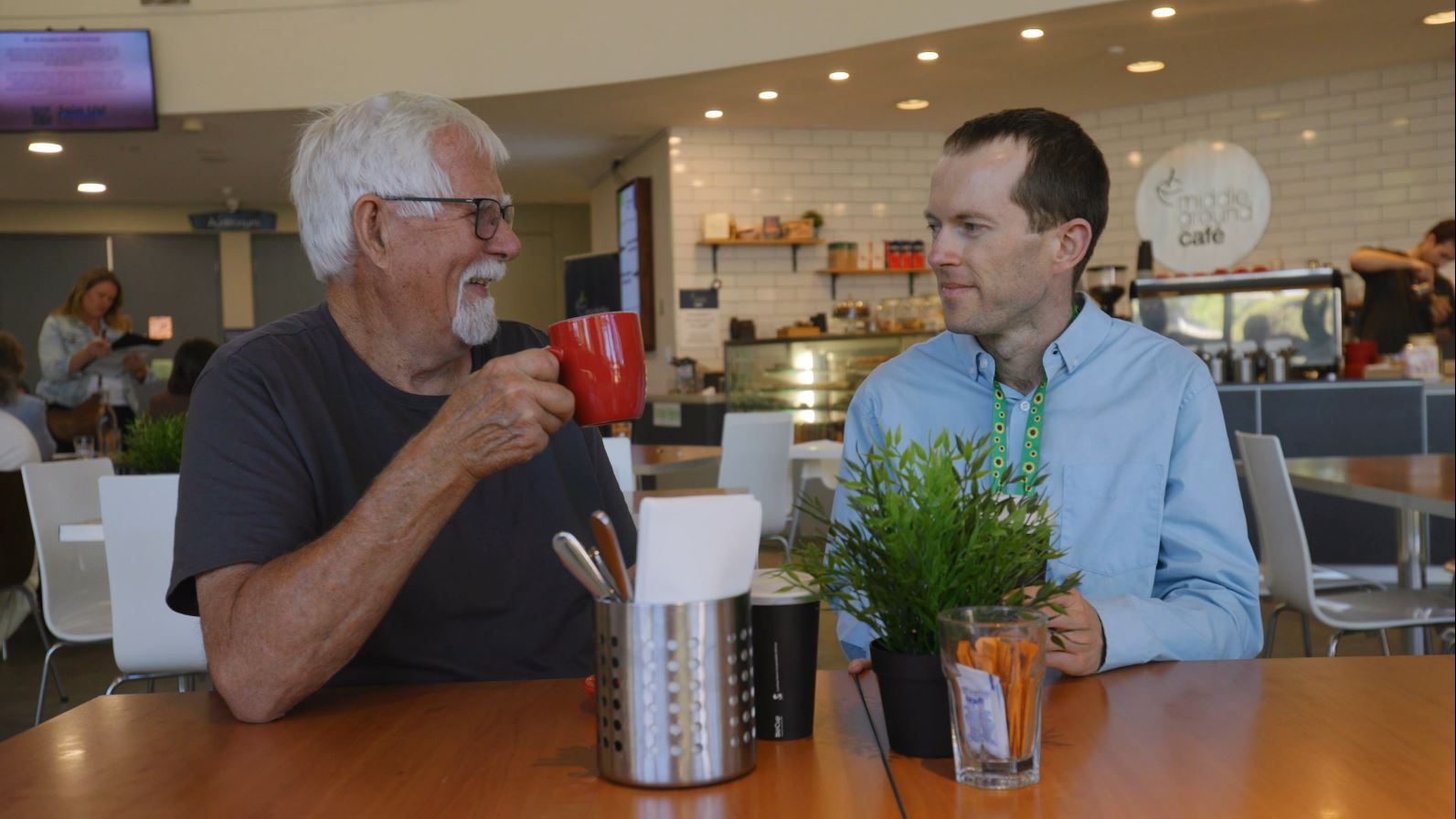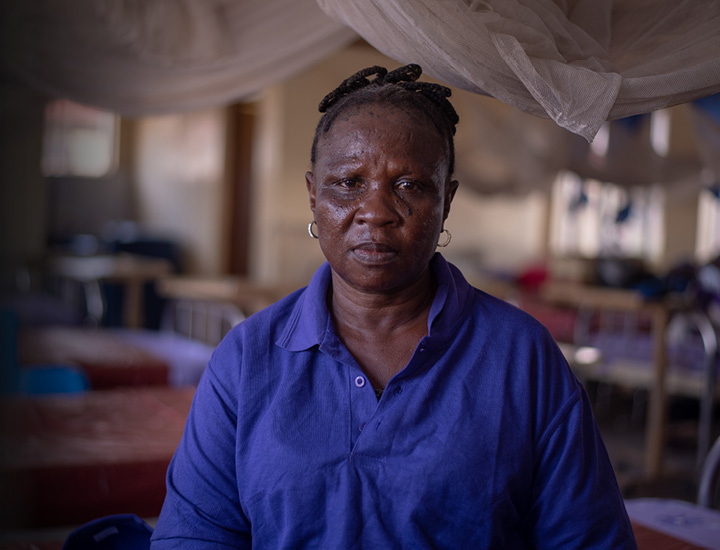Violence against women and girls with disabilities
Pacific, Stories | June 25, 2024
This blog was written by CBM Australia’s Advocacy and Communications team, who have collected stories of the lived experience of people with disabilities in Vanuatu.
Globally, one in three women (35 per cent) who have been in a relationship have experienced physical or sexual violence. Yet in some parts of the world, the rates are much higher – almost double.
The Pacific region has some of the highest rates of domestic violence in the world. Of the 11 countries that have undertaken national research in the Pacific so far, Kiribati (68 per cent), Fiji (64 per cent), Solomon Islands (64 per cent), Vanuatu (60 per cent) and the Republic of the Marshall Islands (51 per cent) have recorded the highest rates of intimate partner physical and/or sexual violence for women.
In Vanuatu, one in six women have experienced physical or sexual violence by their partners in their lifetime. One in nine women describe their experience/s of violence as severe. And one in five women acquired a permanent disability due to physical or sexual violence by their partner.
For women and girls with disabilities, the rates of violence is much higher – they are two to three times more likely to experience physical or sexual abuse.
The National Coordinator of Vanuatu Disability Promotion and Advocacy Association (VDPA), Nelly Caleb, is unfortunately all too familiar with these statistics.
One member, a young woman with a physical impairment, spoke about her experience living with her husband.
“When my husband gets angry with me, that’s when I feel sad… He gets angry with me when I talk too much.”
Her situation is similar to many other women in the country, where violence against women is accepted as the norm. In Vanuatu, the National Survey on Women’s Lives and Family Relationships found that women often minimise the impact of the violence on their health and well-being, with some stating that they do not seek help because the violence was “normal”.
Not only are there high rates of physical violence and emotional abuse against women and girls with disabilities, but also sexual assault. In Vanuatu, two in five women report their first sexual experience as having been forced.
“Women and girls with disabilities face high rates of sexual abuse. Most of our members have been raped.
“People in the community think she [a woman with a disability] is good for nothing, she’s powerless, she’s helpless, so they think they can do whatever they want,” says Nelly.
Another member, also a young woman with a physical impairment, shared her experience of dropping out of school due to an unwanted pregnancy after being raped. The young woman identified the perpetrator as someone within the community. However, it is unlikely that the perpetrator will be penalised.
“I went to school until year nine, but then someone gives me this baby. He forced me.”
Women and girls with intellectual disabilities and psychosocial disabilities are particularly at-risk of physical and sexual violence.
“In our office, and other disability organisations, we have a lot of reports coming from different areas that women and girls, especially those with psychosocial disability and also learning disabilities, face a lot of sexual abuse,” says Nelly.
In general, women and girls with disabilities are not able to access justice when sexually abused. This is because of the cultural practice of settling injustices according to local laws known as “custom”. This is where the perpetrator is given the option by the victim’s parents and community elders to compensate the victim of the offence; and where, unfortunately, the victim is not given the opportunity to speak or express their wishes or interests in how the matter is to be treated.
“People or family members just take it as it’s the “normal” way and sometimes they put very small penalties and don’t think to take it to the higher court.”
Fines as little at AU$30 can be given as a penalty, and often even these aren’t paid.
“One of our members has a psychosocial disability and faced sexual abuse in her community; the chief gave a penalty for the guy to give some money, but he didn’t even give any money. We advocate in the community that, if any cases happen, you need to take them to the police,” says Nelly.
Like their Pacific sisters, women and girls with disabilities in Vanuatu are facing alarmingly high rates of physical and sexual violence. It is vital that strategies to reduce violence against women and girls take extra measures to ensure women and girls with disabilities are included, are aware of their rights and have equal access to services.
“Women and girls with disabilities should know their rights. They need to know they have the same rights as anyone else. They have to be empowered and live as anyone else,” says Nelly.
Photo: Nelly from Vanuatu
https://www.cbm.org.au/stories/case-study-three-violence-against-women-and-girls-with-disabilities
Related Stories

Mrs Thelma leading the way for inclusive education
Education is a fundamental way in which people living in poor communities can break...

We Are Fearfully and Wonderfully Made: A Call for Churches to Embrace Neurodivergence
My name is Daniel Giles, and I’m proudly autistic....

Week 3 – Lent Series 2025
The image of God; an invitation into solidarity Olubunmi remains isolated in her home. Outside, stigma awaits her. For 27 years she has kept her...
